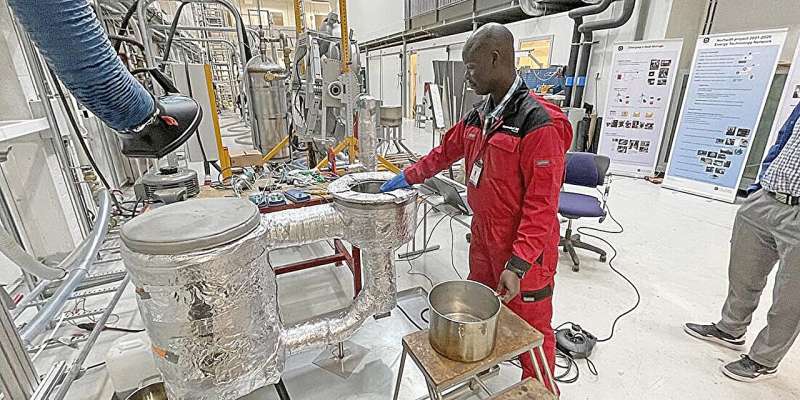
Although sub-Saharan areas may seem perfect for solar ovens, many people use wood or coal as the main source of energy for cooking, especially in areas that are not connected to the power grid.
This can cause health challenges related to smoke and soot from indoor cooking. A new study conducted at KTH Royal Institute of Technology in Stockholm shows that as many as half a million lives could be saved each year by replacing wood and coal for cooking.
As part of a series of Norad programs, NTNU professor Ole Jørgen Nydal has been working on developing various technological solutions to the problem with a group of African universities.
"If you walk around the streets in Uganda, for example, and ask why there are no small solar panels installed on the surrounding houses, they say it is because the batteries stop working after a few years, and that they are expensive. Without storage solutions, creating solar and wind energy for cooking is very difficult," says Nydal, who works at the Department of Energy and Process Engineering.
Nydal has been at the forefront of a long-standing NTNU collaboration with universities in Uganda and Tanzania on developing the use of solar energy for cooking.
In addition to the health benefits of these alternatives, many African countries want to replace fossil fuels with renewable sources of energy.
Solar cookers have not taken off
Recently, Nydal has written a summary and assessment of the various concepts that have been tried in an article published in the Energies journal. He points out that cooking with solar energy has a long history and involves many solutions—from can cookers to solar concentrators.
However, these solutions have never really taken off. The reasons behind this are many, but one major challenge is that some solutions require access to solar energy exactly when you need it.
"One solution to address that problem is to use a form of heat storage, a heat battery, which you charge up with solar energy during the day and cook with in the evening," Nydal said. He specifically highlights heat storage in combination with solar panels.
Solar panels + heat storage = good solution?
Nydal and his project partners have tested a variety of heat storage concepts. The requirements for all are that they must be able to provide heat of up to approximately 220 degrees Celsius, be well insulated so that they avoid heat loss, and must be able to emit heat when the sun isn't shining.
The researchers have looked at systems in which the heat-retaining material is either vegetable oil, rock beds, or solar salt.
A distinction is drawn between systems where the sun is used directly for heating and indirectly via solar panels.
"The conclusion from our experience is that although the energy efficiency of direct systems may be better than solar panel systems, solar panel systems have the advantage of being simple, robust and can also harvest energy from diffuse sunlight," says Nydal.
Many factors have been assessed. For example, are the systems clean and harmless to operate inside people's homes? Can they be produced and maintained locally? Are they robust or do they have many moving parts that can break? Is the heat transferred to the food quickly enough? In his article, Nydal writes that some systems prove to be best suited for frying food, while others are better suited for oven baking.
More information: Jimmy Chaciga et al, Design and experimental analysis on a single tank energy storage system integrated with a cooking unit using funnel system, Journal of Energy Storage (2023). DOI: 10.1016/j.est.2023.110163
Ole Jørgen Nydal, Heat Storage for Cooking: A Discussion on Requirements and Concepts, Energies (2023). DOI: 10.3390/en16186623
Citation: Cooking with solar ovens in sub-Saharan Africa (2024, June 13) retrieved 13 June 2024 from https://techxplore.com/news/2024-06-cooking-solar-ovens-saharan-africa.html
This document is subject to copyright. Apart from any fair dealing for the purpose of private study or research, no part may be reproduced without the written permission. The content is provided for information purposes only.
